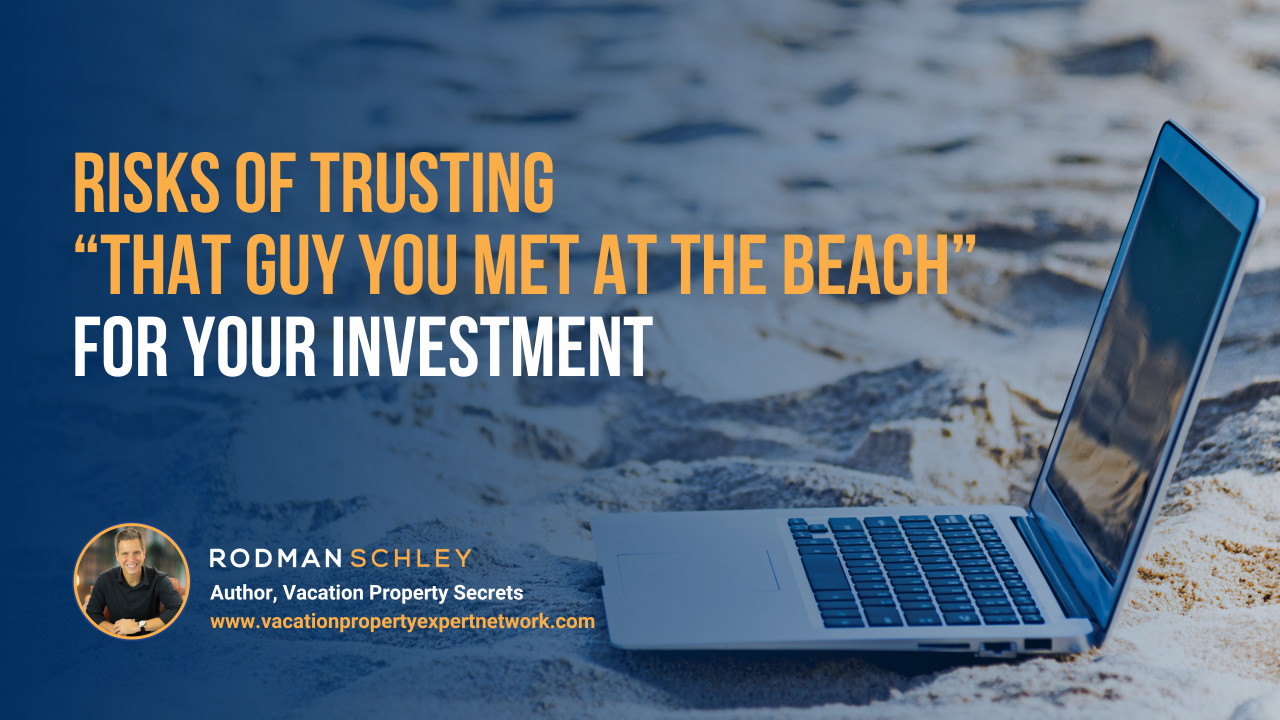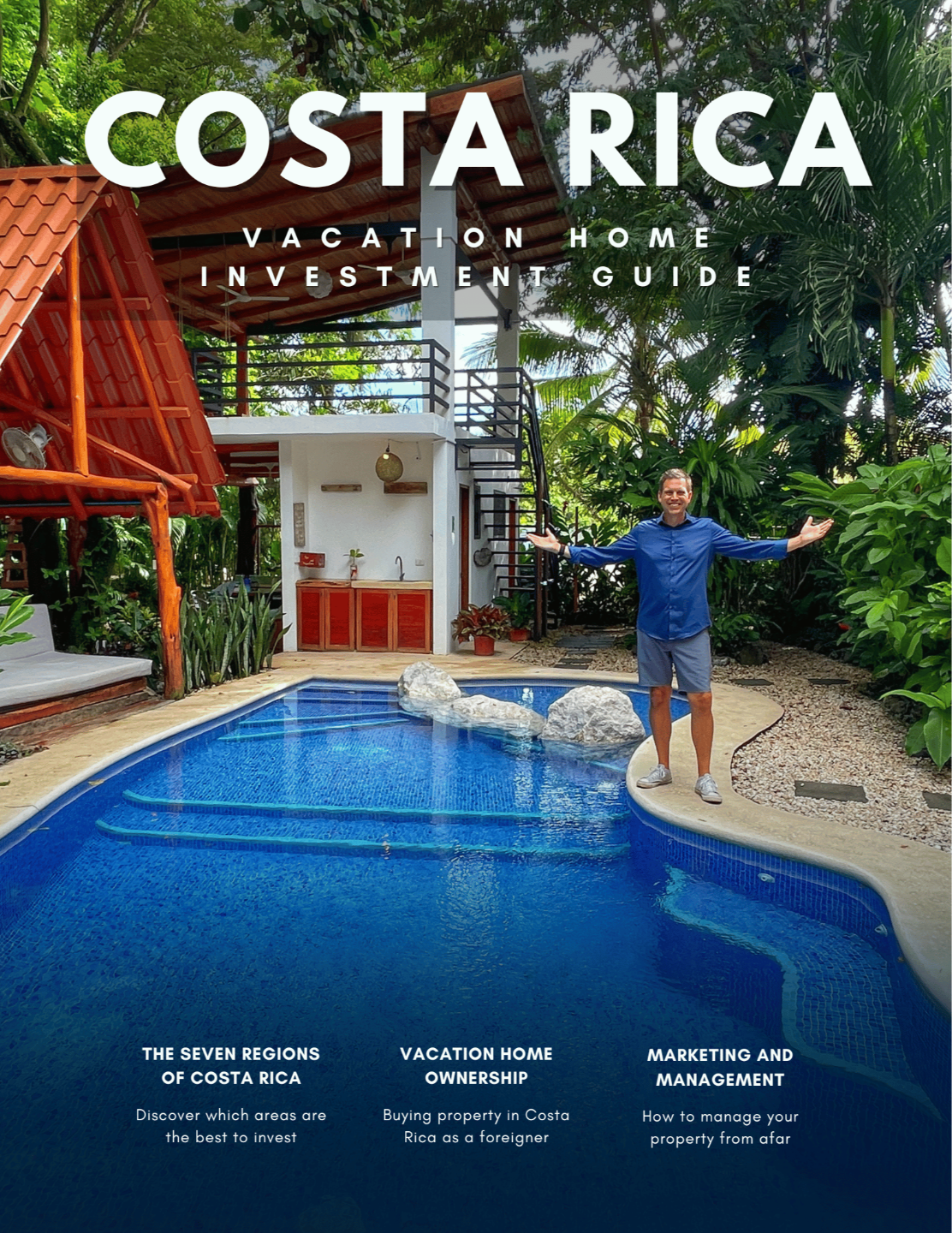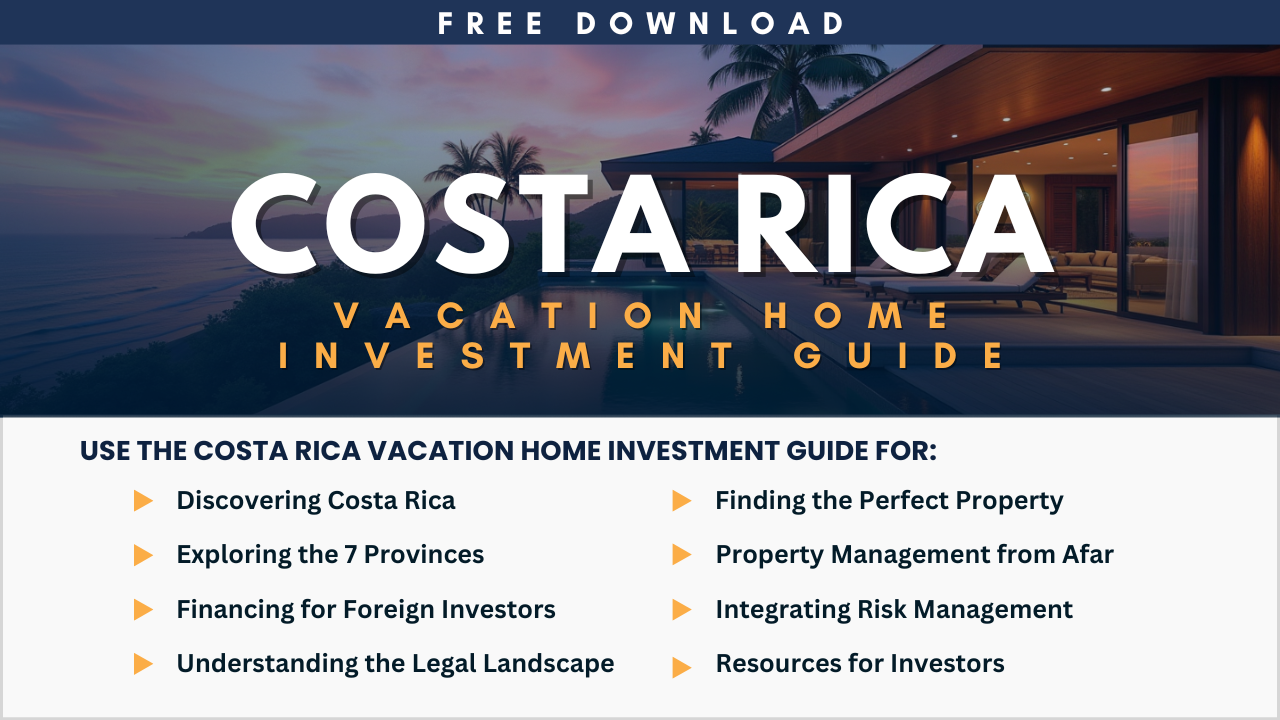
Risks of Trusting “That Guy You Met at the Beach” for Your Investment
You’ve just returned from a vacation in a stunning foreign destination—whether it’s a tropical island or a scenic coastal town. The ocean breeze is still fresh in your mind, and you’re filled with that “vacation high,” imagining the possibility of owning property in this beautiful place. It’s tempting. In the midst of all this excitement, you meet a friendly local who offers you an enticing investment opportunity. He seems trustworthy, knows the area inside and out, and talks about his great network of insiders who can help you find the perfect investment.
But here’s the reality: trusting “that guy you met at the beach” with your investment could be a risky move. Shady brokers, inflated promises, and lack of proper due diligence could turn what seemed like a great opportunity into a financial disaster. While it’s easy to get swept up in the excitement of new investment opportunities while abroad, it’s essential to verify every connection and investment offer before committing your hard-earned money.
In this article, we’ll break down the risks of trusting unverified connections, explore the dangers of dealing with shady brokers, and highlight how to avoid common pitfalls when it comes to foreign investments. By the end, you’ll have a clearer understanding of why doing your research and relying on reputable sources is critical to securing a safe and profitable investment.
The Dangers of Trusting Unverified Connections
We’ve all had that one memorable encounter while on vacation—meeting someone who is charming, knowledgeable, and seemingly well-connected. Whether you met them at a local café, during a social event, or while lounging on the beach, their friendly demeanor and confident advice can make it seem like they are the right person to guide you through an investment opportunity in a foreign market. They strike up a conversation, tell you about the booming real estate market in the area, and share enticing details about a lucrative investment opportunity.
It’s easy to get swept up in the moment, especially when the conversation aligns with your interests, but here's the truth: just because someone seems friendly and well-versed doesn’t mean they are the right person to trust with your hard-earned money. Many investors have learned this the hard way—by trusting the wrong person in an unfamiliar market, leading to financial losses, scammed investments, and a tarnished reputation.
In this section, we’ll explore why trusting unverified local connections—the ones who may seem credible simply due to their knowledge of the area—can be risky and how it can undermine your investment plans. We’ll break down some of the most common dangers and how to avoid falling into these traps.
- Lack of Proper Credentials: Most people you meet while traveling, especially in tourist hotspots, aren’t going to be licensed financial advisors, real estate brokers, or accredited investment professionals. While they might have impressive local knowledge about the area or market, they often don’t have the legal or professional backing required to offer credible and reliable investment advice.
- Local Knowledge vs. Professional Experience: While their knowledge of the local real estate market may be valuable, they may not understand the intricacies of international investment laws, financial regulations, or the true risks involved. In many cases, they may lack the qualifications necessary to advise foreign investors, which can lead to major financial and legal issues.
- Hidden Conflicts of Interest: Local contacts, especially those who seem enthusiastic about offering you a great deal, might be looking to make a quick profit off of your investment. They could be receiving kickbacks from property developers, brokers, or other parties involved in the transaction. Their primary interest may be getting you to buy—not ensuring that the investment aligns with your personal goals or provides solid returns.
- Conflicts of Interest: The person recommending an investment might stand to gain financially from the sale or referral. In many cases, their “advice” is not truly in your best interest, but instead benefits them through a hidden commission or incentive.
- Limited Knowledge of International Investment Laws: Investment laws vary significantly from country to country, and what may seem like a good deal locally could involve legal risks that a local connection may not fully understand or communicate. An individual might be very knowledgeable about the local market but might not be familiar with the legal framework surrounding foreign investments. This can lead to critical oversights, especially for foreign investors who are unfamiliar with local laws and regulations.
- Legal Misunderstandings: For instance, some countries have strict laws about foreign ownership, land usage rights, or tax implications for foreign investors. A local may be unaware of how these laws apply to you as a foreign investor, leading to a deal that could be illegal or void once the authorities get involved.
The Pitfalls of Shady Brokers and Inflated Promises
It’s essential to be cautious when dealing with brokers or advisors who make inflated promises or offer deals that sound too good to be true. Often, these individuals prey on excited investors who want to get involved in a booming market but fail to conduct proper due diligence. Here's how to spot the red flags:
- Promises of High Returns with Low Risk: One of the most common tactics of shady brokers is the promise of high returns with low risk. If someone tells you that an investment will give you double-digit returns with little to no risk, that should immediately raise a red flag.
- Real-life example: An investor in Vietnam was promised 25% annual returns on a luxury hotel investment. The broker assured them that the project was virtually risk-free, with guaranteed bookings from international guests. After purchasing, the investor found out that the hotel was still under construction and had no guests booked, and the developer had mismanaged funds.
- Key Takeaway: No investment is completely risk-free, and high returns often come with high risks. Avoid investments where the promised returns seem too high or unrealistic. Always ask for proof of performance and documentation.
- Lack of Transparency or High Pressure Tactics: Shady brokers often use high-pressure sales tactics to rush you into making a decision. They might promise limited-time deals, give you only a short window to act, or push you to make an immediate commitment. A reputable broker or advisor will always give you ample time to research, consider alternatives, and consult professionals.
- Lack of Transparency or High Pressure Tactics: Brokers often claim to have extensive experience or insider knowledge, but their credentials may be unverifiable. Always ask for references, licensing information, and professional certifications before proceeding. Research their reputation through industry bodies or by reaching out to other investors who have worked with them.
- For instance: A real estate broker in Mexico claimed to have 25 years of experience and a list of local connections. However, after conducting a background check, the investor found no record of the broker’s official business registration or any professional certifications, rendering their claims dubious.
How to Avoid These Risks
While these risks are real, they can be mitigated through careful research, due diligence, and seeking professional advice. Here are some steps to protect yourself:
- Conduct Thorough Research: Always verify the credentials of anyone who is offering investment advice. If you’re meeting a local broker or agent, check their license, professional history, and client reviews. Use trusted real estate platforms and official industry networks to ensure they have a good reputation.
- Work with Certified Professionals: Always work with licensed, certified professionals—whether it's a real estate agent, financial advisor, or legal expert. In most countries, reputable brokers are registered and governed by regulatory bodies, which can be verified.
- Get Legal Advice: Before signing any agreements or contracts, especially in foreign countries, seek out local legal counsel to ensure you understand all of the terms, risks, and legal protections in place. A lawyer can help you navigate local laws, tax implications, and potential risks that may not be immediately apparent.
- Avoid Rush Tactics: Take your time. If a deal is good, it will be available after a few days of careful consideration. Pressure tactics or "limited-time offers" are often signs of fraudulent schemes. Don’t feel rushed to sign any agreement, and always ask for time to review the deal thoroughly.
Conclusion
Investing in foreign markets can be a lucrative opportunity, but trusting the wrong people can leave you with costly mistakes and unexpected financial losses. While meeting friendly locals and hearing about investment opportunities may seem like a chance to seize an amazing deal, it’s essential to remain cautious and verify every connection.
Shady brokers, inflated promises, and unverified claims can easily mislead even the most experienced investors. Protecting your hard-earned money requires proper research, due diligence, and seeking reputable professional advice. By staying vigilant and avoiding rush tactics, you can ensure your investment is legitimate and aligned with your goals.
Investing abroad doesn’t have to be risky if you take the necessary precautions. The next time you meet “that guy at the beach” offering a hot tip on an investment, remember: always verify, always research, and never invest on impulse.
👉 For more advice on avoiding scams and making safe international investments, visit vacationpropertyexpertnetwork.com.







